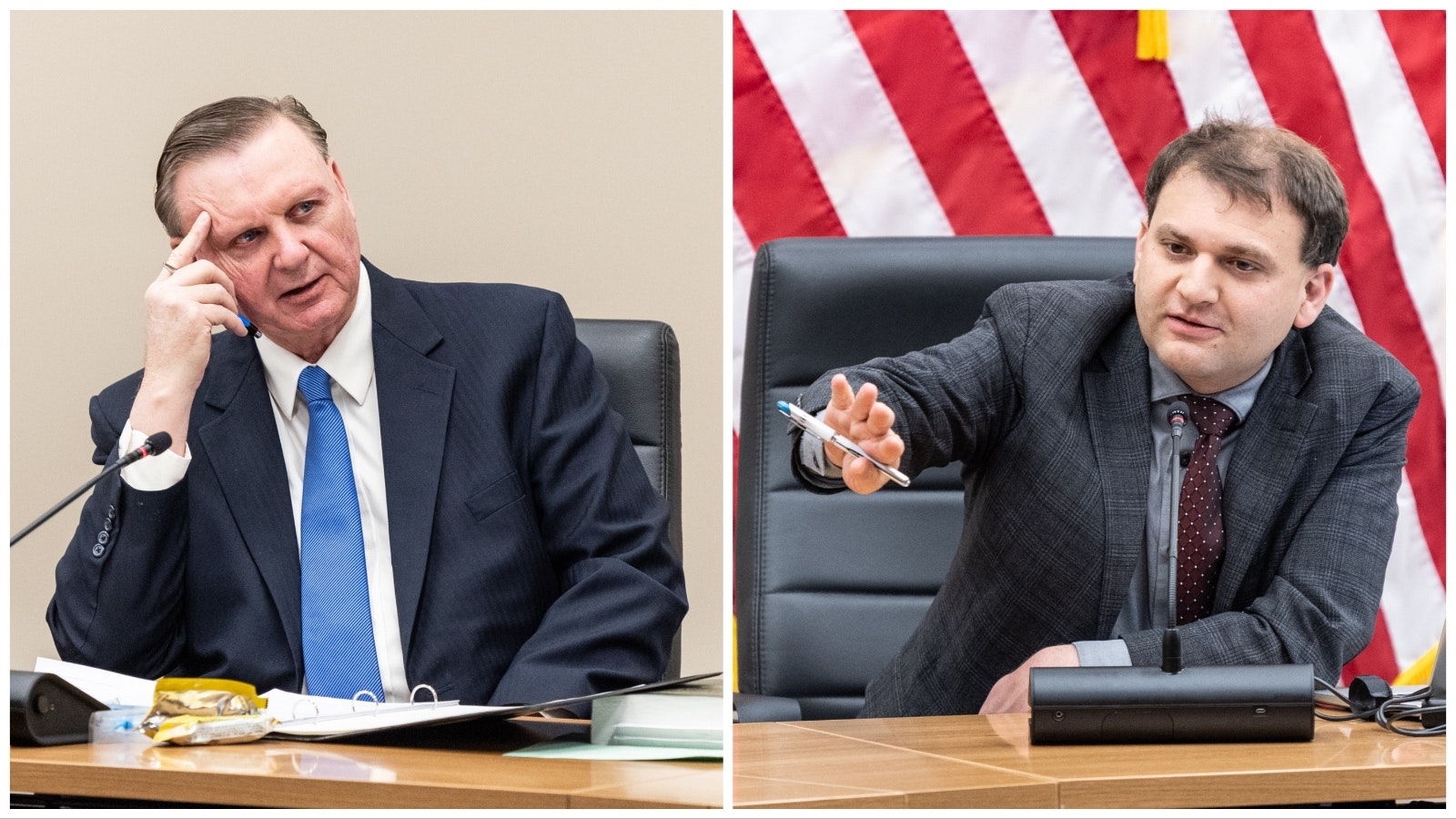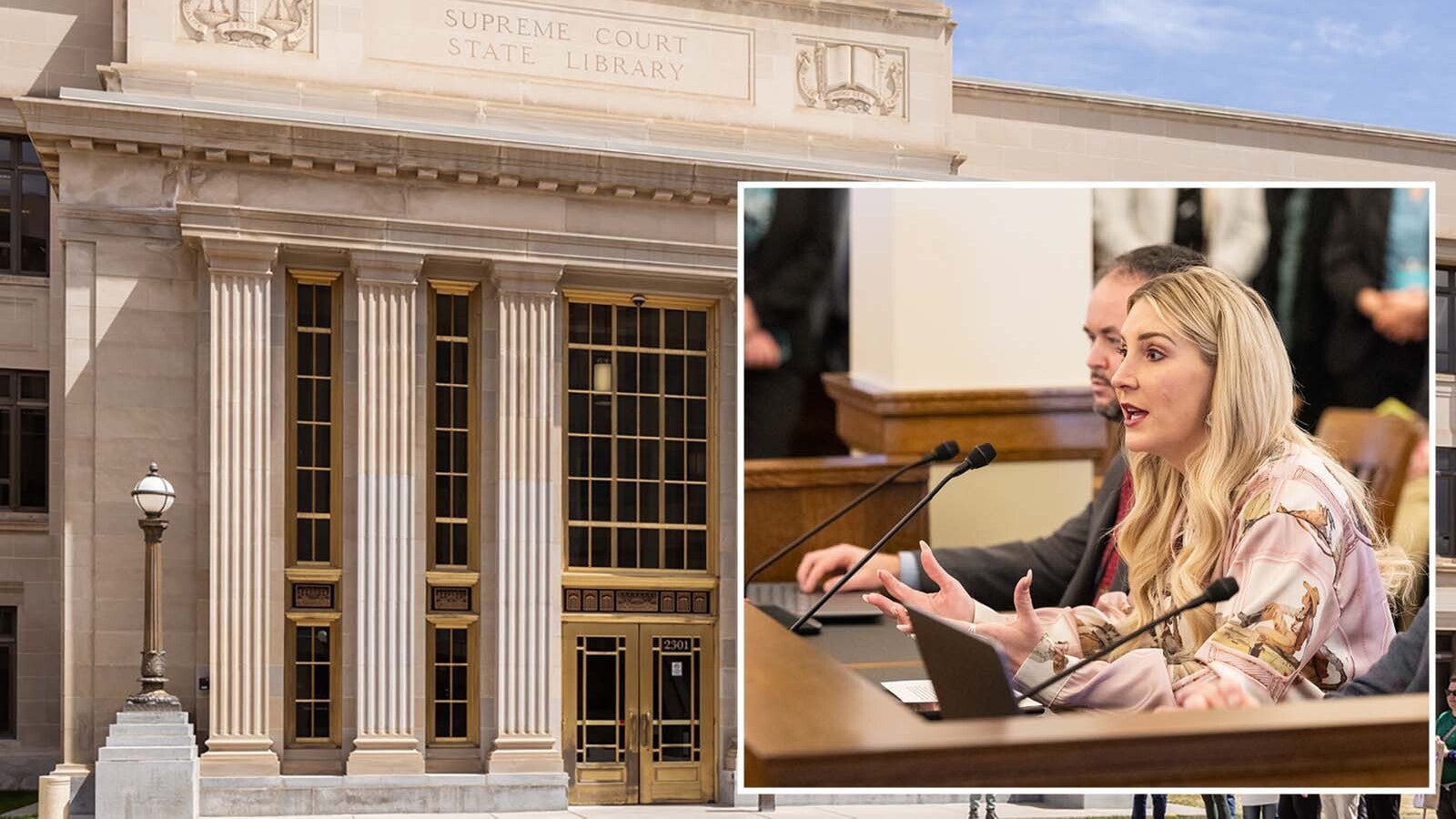The Wyoming Treasurer Office has updated its policy on environment, social and governance (ESG).
The office’s previous policy directed state investment decisions to be “agnostic” on the issue of ESG, arguing that Wyoming would take a substantial hit to the return on its investments if it were to divest of funds associated with the progressive ESG movement.
The new policy announced Wednesday directs the state’s investment managers to make decisions on what’s best for the state’s returns, while outlining a series of steps to be taken if an investment partner isn’t performing within those guidelines.
In extreme cases, the state may divest from an investment partner acting to advance progressive policies that harm returns on Wyoming investments.
“Wyoming is dedicated to ensuring that our investments obtain the highest risk-adjusted return,” Treasurer Curt Meier said in a statement. “All of our managers shall adhere to this vision and not allow non-pecuniary diversions to alter this approach.”
What Is ESG?
Sometimes called “woke investing,” ESG rates funds on various markers of progressive-friendly policies related to protecting the environment, diversity in the workplace and community relations.
Any association with fossil fuel industries quickly gets a fund rated down. Timber industries, gun manufacturers and agricultural businesses also face pressure from the movement.
Critics of the ESG movement say it has become a formidable mechanism in pushing progressive policies by financially starving companies that don’t comply with ESG standards. In this way, ESG has been able to circumnavigate democratic processes.
The Wyoming treasurer’s updated policy only reacts if such considerations fail to produce the best rate of return for state investments.
Penalties
Meier discussed the policy update at the State Loan and Investment Board monthly meeting Thursday.
The board didn’t vote on any changes to its Investment Policy Statement, which Wyoming’s investment fund managers are required to comply with.
Under the new policy, fund managers would be directed to make decisions based on “pecuniary factors,” which Meier said means “having to do with money.”
Materials from his office explaining the updated policy state that pecuniary factors do not include the promotion of social, political or ideological interests. Non-pecuniary diversions from fiduciary responsibilities will result in lower returns and increased risk.
Meier said at the board meeting that while some states have enacted penalties for using ESG guidance regards decisions involving state funds, Wyoming’s policy triggers a reaction only if decisions involving politics and ideology negatively impact investment returns.
“I think we’ve got it fairly well nailed down to where we actually have to identify that there’s a potential loss to the portfolio or to the state,” Meier said.
Meier’s office is responsible for a portfolio totaling about $26 billion. Returns on these investments rank in the top three largest sources of general fund revenue for the state’s budget.
Ask Questions First
Meier said that the penalties other states enacted are a “non-starter” because investment managers would be less likely to want to do business with Wyoming.
“I think it’d have a chilling effect on hiring managers and a chilling effect on keeping employees,” he said.
The updated policy would have a series of steps the treasurer’s office would take if one of the state’s investment partners was acting in a way that wasn’t increasing the state’s returns or lowering its investment risk.
The office would communicate to the partner that a change in policy is needed, Meier explained. If that doesn’t produce results, the next step would be for the office to use proxy voting to effect a change, which is where the state’s shareholder voting representatives vote to force change at a company.
If that doesn’t work, Meier said, the state could move to divestment or replacement of an investment partner with a more competitive alternative.
“We're not going to be cowboys, shooting first and asking questions later. We're going to actually define that we have a problem and try to characterize what that cost might be,” Meier explained.
Proxy Voting
Meier said that the proxy voting action steps outside investment policies, but it allows the state to take action in “dire circumstances.”
As an example, he pointed to Bank of the West, which announced in 2018 it would limit the amount of business it does with companies involved in fossil fuel production.
In response, then-Treasurer Mark Gordon criticized the bank for its stance, arguing that it impacted Wyoming’s overall economy. He prohibited the bank from participating in a small state deposit program.
Meier said that the proxy voting policy allows the state to communicate its objections to companies that pursue policies that aren’t in Wyoming’s best financial interest.
Tighter Language
Secretary of State Chuck Gray said he likes the updated policy, but thinks it should be strengthened.
“I’ve been pretty clear that I’m very opposed to this ESG,” Gray said.
Gray said the policy needs to have stronger language on proxies, the ability to dives, and what the procedure would look like. His concern, he explained, is that others would try to define politically motivated decisions as being in the best interest of the state’s decision.
“You got to look out. A lot of these folks look down on us. They’re going to try to find any way they can. So, we got to make sure it’s tight,” Gray said.
Multifaceted Decisions
Wyoming Auditor Kristi Racines proposed some caution in choosing the language of the policy to avoid “unintended consequences.”
Racines said there may be various reasons for the state to divest, even when there isn’t a defined negative impact to investment returns.
As an example, Wyoming may decide to limit its association with China, and such a decision would run counter to the policy’s wording.
“I just want to make sure that the pecuniary language doesn't limit our ability to make some decisions that may be more multifaceted than just financial,” Racines said.
Governor Gordon, who chairs the board, said that the board would still retain authority to make those decisions under the policy.
Fiduciary Vs. Pecuniary
Gordon also discussed the quality of the policy’s language.
The word “pecuniary” was chosen because “fiduciary” grants a lot of leeway. Companies using climate change as a reason for a certain investment decision can claim a decision is fiduciary as it’s avoiding losses from climate change.
“Which is nonsense,” Gordon said.
Meier said in California, officials are redefining the word “fiduciary” in the state’s investment policies to include concerns about climate change. Commercial buildings, for example, would need to meet certain climate standards.
If the property doesn’t meet those standards by a certain date, the owners will be prohibited from renting or selling the property.
“I don’t define fiduciary as compelling people to freeze in the dark,” Gordon said.
The board will likely resume discussions on the updated policy at its meeting in June for possible inclusion Wyoming’s Investment Policy Statement.
Kevin Killough can be reached at: Kevin@CowboyStateDaily.com





